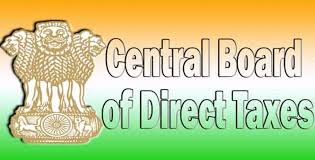
The proposed anti-profiteering authority under the new GST regime will take up for scrutiny only those cases that have mass impact and those where undue profit of more than Rs 1 crore has been earned, a senior government official said. A five member National Anti-Profiteering Authority, headed by a secretary-level officer, will be set up soon to keep a tab on businesses that have not passed on to consumers the benefit of lower tax rates under the Goods and Services Tax (GST) regime. “It will take two-three months time to gauge whether the benefits of GST are being passed on to consumers. By then, the authority would be put in place,” the official told PTI. As per the three tier structure — the GST Implementation Committee (GIC) will receive complaints and those which are state specific and involving smaller amounts will be transferred to the state screening committee.
Other cases will be referred to the Directorate General of Safeguards who will finish investigation within 3 months and send the findings to the anti-profiteering authority, which will pass an order in another 3-months time. “The issues which have a national or mass impact will be taken up by the authority. There may be many small cases which would be coming to the GIC, but only those cases where the financial implication is more than Rs 1 crore would be taken up by the authority. Rest would be transferred to the state screening committee,” the official said. ADG Safeguards will act as Secretary to the National Anti-Profiteering Authority and will coordinate between the authority and the DG Safeguards office, the official added.
The Central Board of Excise and Customs (CBEC) last week appointed Samanjasa Das as the Additional Director General (ADG) Safeguards in the Directorate General of Safeguards.
Das was ADG in the Directorate General of Central Excise Intelligence (DGCEI). In the three-tier structure for monitoring anti- profiteering, the GST implementation committee, including four officers each from the Centre and states and one officer from the GST Council, will first receive the complaints. Thereafter, DGS, which has the power to issue summons, will conduct investigation and give its findings to the authority. The anti-profiteering authority, if it finds that a company has not passed on the GST benefits, will either direct it to pass on the benefits to consumers or if the beneficiary cannot be identified will ask the company to transfer the amount to the ‘consumer welfare fund’ within a specified timeline. The authority will have the power to cancel registration of any entity or business if it fails to pass on to consumers the benefit of lower taxes under the GST regime, but it would probably be the last step against any violator.
According to the anti-profiteering rules, the authority will suggest return of the undue profit earned from not passing on the reduction in incidence of tax to consumers along with an 18 per cent interest, as also impose penalty. A five member committee, headed by Cabinet Secretary P K Sinha, comprising Revenue Secretary Hasmukh Adhia, CBEC Chairman Vanaja Sarna and chief secretaries from two states, will soon finalise the Chairman and members of the authority. It will be in existence for just two years unless the GST Council extends the tenure. The chairman will be paid a monthly salary of Rs 2.25 lakh plus other allowances and benefits, as are admissible to a central government officer holding posts carrying the same pay. Technical members will be paid a monthly salary of Rs 2,05,400. The chairman and members will hold office for a term of two years or until the age of 65-years, whichever is earlier.





